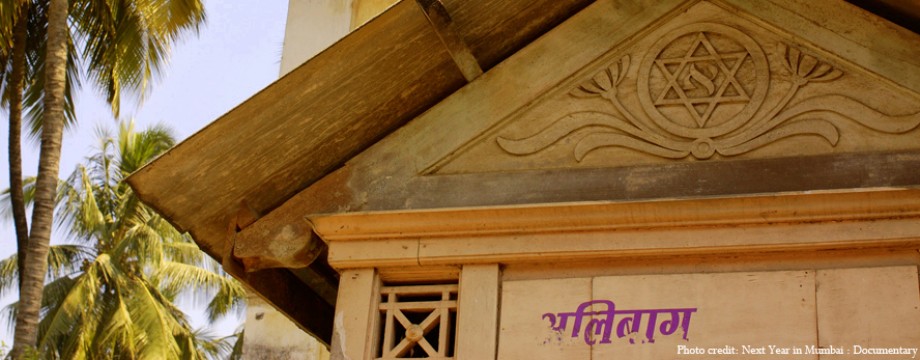INDIA IS PERHAPS the only country in the world where Jews haven’t suffered anti-Semitism from the natives. Judaism was one of the first religions to arrive in India. The first wave came to Kerala following the capture of Jerusalem and the destruction of their first temple there by the Babylonians under Nebuchednezzar in 597 BC. They were called Cochin Jews. Assimilated with the local population, the community built synagogues and colonies there. Few centuries later a shipwreck stranded seven Jewish families at Alibag, south of Mumbai. Now called ‘Bene Israel’, these families multiplied and integrated with the local Maharashtrian population and adopted their language, dress and food. They were nicknamed the Shanivar Teli (“Saturday oil-pressers”) by the local population as they abstained from work on Saturdays.
Baghdadi Jews immigrated to India around 250 years ago from Iraq, Iran, Afghanistan, Syria, and Yemen and settled down in the city of Mumbai and later spread to Kolkata and Burma. They were traders and quickly became one of the highest earning communities in the city. As philanthropists, some of them donated their wealth to public structures. The David Sassoon Docks and a Sassoon Library are some of the famous landmarks still standing today. Alas! The Calcutta Jews left only a few traces of their presence for a century and a half in that metropolis— three impressive large synagogues, two small prayer-halls, two schools and a cemetery. Two sizeable buildings, Ezra Mansions and the Ezra Hospital, still bear the name of the Jewish merchant who built them.
An estimated 9,000 people in the northeastern Indian states of Mizoram and Manipur started practicing Judaism in the 1970s, claiming to be descendants of the Tribe of Manasseh. They have since been recognized by Israel as a lost tribe and are formally called Bena MenasheUnlike many parts of the world, Jews have historically lived in India without anti-Semitism from Indians. It was only a millennium and a half later their first arrival, when they suffered for being Jews— when the Portuguese, fresh from the Catholic inquisition, arrived on India’s western shores and started persecuting the Jews they found. The majority of the Hindu community has been very tolerant towards Jews. Over the course of the twentieth century, several important Hindu leaders, scholars and politicians, such as Vinayak Damodar Savarkar, Sita Ram Goel, Arun Shourie and others have vocally condemned anti-Semitism and have expressed support for Israel and the Jewish right to self-determination.Of the 25,000 Jews in India at independence, perhaps 5,000-6,000 remain, and many of them are highly assimilated Bene Israel in Mumbai. The majority of Indian Jews have made aliya (migration) to Israel in search of their promised land since the creation of the modern state in 1948. As the Jewish community of India dies out, a part of India’s history dies with it. It was a remarkable son of this community, Major-General J.F.R. Jacob, who went to Dhaka to negotiate the terms for surrendering of the Pakistani forces there in December 1971. Maj. Gen. Samson, who was awarded the Padma Bhushan, and a few other Jews, achieved prominence in the Indian Army. Two of India’s leading literary personalities, poet Nissim Ezeickel, and cartoonist Abu Abraham, are Jews. So were the late famous Hindi film actor David and the late Sulochana, Queen of Indian Silent Films, and the actress cum dancer Helen. Indian Jews have left their mark on our national evolution. And yet, as Jael Silliman writes, “the Jewish presence has been written over by contemporary India and is only visible to those in search of it.”
An estimated 9,000 people in the northeastern Indian states of Mizoram and Manipur started practicing Judaism in the 1970s, claiming to be descendants of the Tribe of Manasseh. They have since been recognized by Israel as a lost tribe and are formally called Bena MenasheUnlike many parts of the world, Jews have historically lived in India without anti-Semitism from Indians. It was only a millennium and a half later their first arrival, when they suffered for being Jews— when the Portuguese, fresh from the Catholic inquisition, arrived on India’s western shores and started persecuting the Jews they found. The majority of the Hindu community has been very tolerant towards Jews. Over the course of the twentieth century, several important Hindu leaders, scholars and politicians, such as Vinayak Damodar Savarkar, Sita Ram Goel, Arun Shourie and others have vocally condemned anti-Semitism and have expressed support for Israel and the Jewish right to self-determination.Of the 25,000 Jews in India at independence, perhaps 5,000-6,000 remain, and many of them are highly assimilated Bene Israel in Mumbai. The majority of Indian Jews have made aliya (migration) to Israel in search of their promised land since the creation of the modern state in 1948. As the Jewish community of India dies out, a part of India’s history dies with it. It was a remarkable son of this community, Major-General J.F.R. Jacob, who went to Dhaka to negotiate the terms for surrendering of the Pakistani forces there in December 1971. Maj. Gen. Samson, who was awarded the Padma Bhushan, and a few other Jews, achieved prominence in the Indian Army. Two of India’s leading literary personalities, poet Nissim Ezeickel, and cartoonist Abu Abraham, are Jews. So were the late famous Hindi film actor David and the late Sulochana, Queen of Indian Silent Films, and the actress cum dancer Helen. Indian Jews have left their mark on our national evolution. And yet, as Jael Silliman writes, “the Jewish presence has been written over by contemporary India and is only visible to those in search of it.”
To see the original source and author of this please go to this URL:
http://www.merinews.com/article/jews-of-india/123968.shtml
